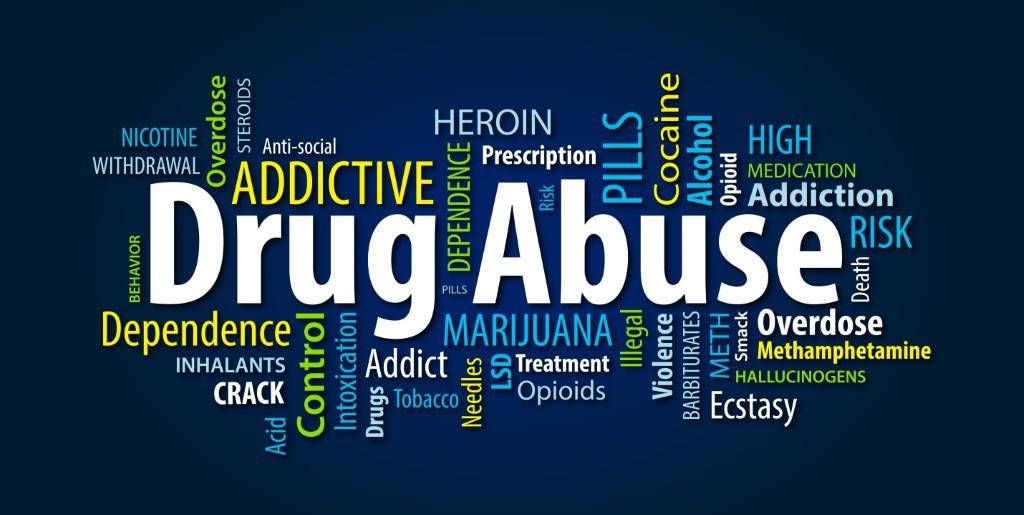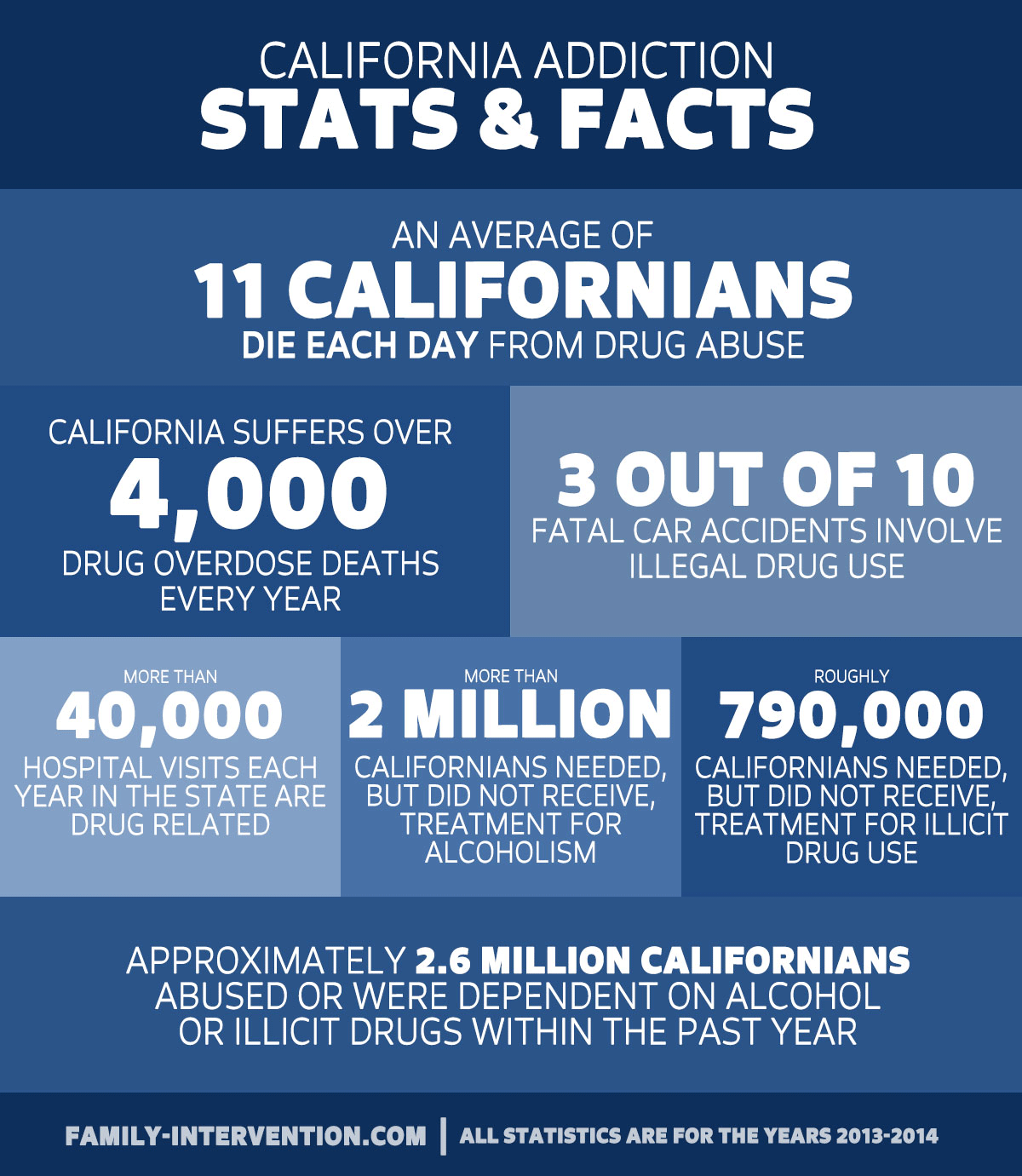Drug Addiction
I decided to write this blog about drug abuse/addiction because it is something that, sadly, is very prevalent in a lot of communities across the world. According to Liu. J., and Li. J., drug addiction is a chronic, relapsing brain disorder. It is a complex disorder that involves complicated neural mechanisms and psychological processes. It is something that we see in the news, we watch in programs that are meant to entertain us, and we hear about it in music. It is a subject that we cannot get away from in our daily lives.
Research
This is a global issue, but for the sake of this blog and all the data presented, I will be focusing on the United States. According to the 2018 National Survey on Drug Use and Health among individuals aged 12 and older in 2018, an estimated 53.2 million used illicit drugs. This equates to 19.2% of the total population. Said another way, 1 in 5 people ages 12 and older used illicit drugs during the year 2018. Of these, it is estimated that 7.5 million had at least one illicit drug disorder.
From the above you can see that of the 53.2 million that used an illicit drug(s), "only" 7.5 million could be classified as having as illicit drug disorder using the DSM(Diagnostic and Statistical Manuel of Mental Disorders)-IV criteria for abuse or dependency. No one knows why some people become addicted to drugs while others do not. There are several factors involved in this highly complex process such as a person's biology, environment, and development. In fact, according to Ruisoto and Contador, there is strong evidence of genetic contributions to addiction vulnerability, around 50% heritable, the specific genes of which are unknown.Therefore, it is critical to not put oneself at risk and try any sort of illicit drug to begin with. The 53.2 million individuals who used one or more drugs did not know whether or not they would become addicted. It is, in essence, a game of Russian roulette.
The war on drugs is a real movement that has been going on for decades, and with good reason. It is dangerous, it destroys the lives of those living with addiction and their families. And it is prevalent. The image found to the right of this text was based on information gathered in 2010. During this time there were about 41,340 deaths annually attributed to drug overdoses. The following images will show more updated information, and we can see that more recent date gathered in 2016 shows an annual death of 64,000 due to drug overdoses.

Why it Matters to Me
 Growing up I was an avid watcher of the show Intervention. From a very young age, 9 and up, I watched the show, probably because my older sisters watched it. I do not know if it was because I was so young seeing such a real, graphic docu-series, but I was greatly impacted. Since watching the show, all through puberty and now into adulthood, I am terrified of drugs. I never want to touch them, try them, go near them. They were never something that was tempting or "cool". Sadly though, growing up, many of my classmates seemed to think the exact opposite of me. They viewed drugs as something that was not a big deal, and that it was something you did if you wanted to be cool. Drugs and alcohol. Their thinking genuinely angered me because it was so wrong and ridiculous. Real life does not work that way. It is very saddening to know that some of my previous classmates have fallen into addiction, and their lives and the lives of their families are filled with suffering. I have seen many people's lives turned upside down all due to some chemical substance. It is a tragedy.
Growing up I was an avid watcher of the show Intervention. From a very young age, 9 and up, I watched the show, probably because my older sisters watched it. I do not know if it was because I was so young seeing such a real, graphic docu-series, but I was greatly impacted. Since watching the show, all through puberty and now into adulthood, I am terrified of drugs. I never want to touch them, try them, go near them. They were never something that was tempting or "cool". Sadly though, growing up, many of my classmates seemed to think the exact opposite of me. They viewed drugs as something that was not a big deal, and that it was something you did if you wanted to be cool. Drugs and alcohol. Their thinking genuinely angered me because it was so wrong and ridiculous. Real life does not work that way. It is very saddening to know that some of my previous classmates have fallen into addiction, and their lives and the lives of their families are filled with suffering. I have seen many people's lives turned upside down all due to some chemical substance. It is a tragedy. Solution
It is difficult to try and come up with one solution for such a complicated issue. One important area of focus should of course be prevention. If an individual does not try drugs to begin with, then there is no risk of addiction. There are many national programs aimed at educating the public about drugs. Schools have programs to educate their students in the reality of drug use and the consequences they could suffer. All of these are great and necessary. I however would like to focus on those individuals who already have become addicted.
Prevention is great and necessary for the next generation, but that does not mean those who are in need now should be forgotten. The cost of treatment is very high, especially if an individual does not have insurance. According to the addiction center the cost for inpatient rehab is anywhere from $12,000-$60,000. There are outpatient rehabs but these are more suitable for mild to moderate addictions, and even these have a hefty price tag ($5,000 - $10,000+, depending on how often the individual visits the center each week and for how long). Depending on the substance abused, medication may be necessary, and of course, these come at a cost. For a year supply of methadone for people coming off heroin, it is about $4,700. There are free rehabs, but sadly these have a wait list and limited funding, so you would be better off going to a center that has financing options. It is truly remarkable to me knowing there is a wait list for free rehabs. These people need help, want to get help, and they cannot because they do not have the funds for it. It is true, initially taking drugs is a voluntary choice. However, after an individual becomes addicted, it is a disease, a chronic one at that. It is like asthma or diabetes, it never goes away and needs consistent management. There needs to be more funding for resources to help those that want to get help for their medical issue. There is a stigma around drug addicts, and it is not 100% wrong. However, we need to remember that these people are still human beings underneath their mental disorder and their lives are precious. They are worth saving.
Community Responses
- Sergio
"I personally have seen the effects of drugs with my younger brother. I hate the use of drugs in our community. Drug usage kills and destroys families."
-Valerie
"I learned about drugs through D.A.R.E, although I haven't had much exposure to drugs or drug users. It scares me to know how easy it is to fall victim to them."
-Paris
Resources
- Liu, J., & Li, J. (2018). Drug addiction: A curable mental disorder? Acta Pharmacol Sin, 39(12), 1823-1829.
- 2018 NSDUH Annual National Report. (2019, August). Retrieved October 18, 2019, from https://www.samhsa.gov/data/report/2018-nsduh-annual-national-report.
- National Institute on Drug Abuse. (2018, June). Understanding Drug Use and Addiction. Retrieved October 18, 2019, from https://www.drugabuse.gov/publications/drugfacts/understanding-drug-use-addiction.
- Ruisoto, P., & Contador, I. (n.d.). The role of stress in drug addiction. An integrative review. Physiol Behav, 202, 62-68.
- Cost of Rehab: Paying for Addiction Treatment - Addiction Center. (n.d.). Retrieved October 18, 2019, from https://www.addictioncenter.com/rehab-questions/cost-of-drug-and-alcohol-treatment/.




No comments:
Post a Comment